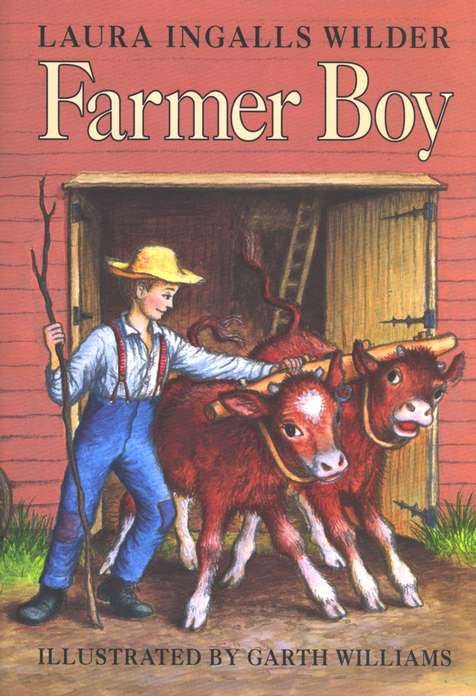Choosing what you inherit from your parents
Last year, I was interviewed by a reporter for a Connecticut newspaper chain about my activism that seeks to increase federal funding for cultivated-meat research. For those who don’t know, cultivated meat is grown from animal cells, without slaughter. One of the things he asked me was whether I had been raised vegetarian or vegan. Honestly, I laughed at the question. In many ways, nothing could be further from the truth!
My parents lived and worked at a boarding school that farmed animals. Eventually, as a student there, I participated in what were euphemistically called ‘chicken harvests.’ I’ve written about that in greater depth elsewhere. After I graduated, my mother ran the farm program and eventually purchased a property near campus, where she keeps her own animals.
When I was young, my mom paid me to read Laura Ingalls Wilder’s Farmer Boy, a favorite from her childhood. When I was older, both of my parents shared copies of Michael Pollan’s Omnivore’s Dilemma with an almost evangelical zeal. I’ve never actually read it, but I gather it summarized their views on agriculture well, at least at the time.
But things weren’t quite so black and white. I grew up hearing stories from my mother about her rehabilitating wild animals as a teenager. Even after I was born, when I was a toddler, she nursed an injured crow back to health and released him into the wild. His name was Poe, which I believe was a reference to The Raven by Edgar Allen Poe.
I often think my mom just loves being in the company of animals, and, in a better world, where veganism wasn’t seen as countercultural, she would be equally as happy running a sanctuary as she is running a farm. As I get older, I realize there are other, more vegan-friendly resources to draw from in my family history. I can choose what I inherit from my parents.
It was my mother’s copy of Peter Singer’s Animal Liberation that I read as a high-school senior that initially got me interested in animal rights. I gather she read the book in college, but didn’t enjoy it. I think she found Singer to be overly cold, which is a common criticism of the philosopher, even amongst animal activists.
My mom did experiment with vegetarianism as a young woman, primarily inspired by Laurel’s Kitchen. While she returned to eating meat, she kept the cookbook and used it frequently. To this day, a veganized version of the banana bread from Laurel’s Kitchen is my absolute favorite.
Laurel’s Kitchen was written by students of Eknath Easwaran, a Hindu perennialist. It was through this vegetarian cookbook that she was introduced to the man she still considers to be her favorite religious writer. My mom identifies as a Christian, but I think it’s fair to say Easwaran’s work greatly informed her theological views.
When I had my first serious depression in my sophomore year of college, she didn’t give me a copy of the Bible or a book by C.S. Lewis, another spiritual writer she read frequently when I was growing up. She gave me a text by Easwaran. Now, I didn’t read it, because I was a pretty dogmatic atheist at the time, but I think this shows how much she valued him!
It wasn’t until recent years, when I began feeling a religious pull, that I actually read his work. When I did, it made me wish I’d done it sooner. His conception of God was big enough that it could withstand my atheist objections. But, more importantly, he was a vegetarian for animal-welfare reasons and wrote about the subject with some frequency.
My mom and I don’t argue about vegetarianism and veganism as much as we used to. Partly, this could be explained by exhaustion and acceptance. We’ve been having this debate off and on for almost 20 years! We know where the other stands. But I like to think it’s also because of a growing realization for both of us that my animal liberationism is inspired by her in various ways.


